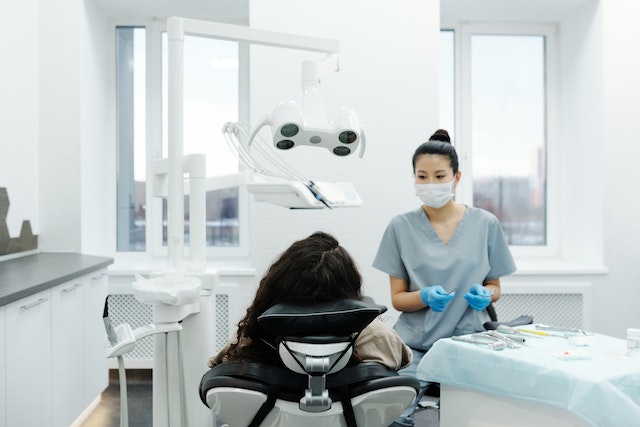
A misaligned jaw can cause chronic pain. The misalignment increases the muscle strain in your head, face, neck, and even shoulders. You might have a misaligned jaw due to genetics. This is a congenital disability, known as a faulty jaw. Alternatively, you may have experienced trauma due to getting hit in the face during an accident or while playing sports. As a result, one or both of your jaws may be knocked out of place. In either case, your dentist will inform you that you need to receive treatment from an orthodontist or a jaw surgeon before symptoms worsen.
If you end up having to go the surgery route, you want to work with the best jaw surgeon in your area. They will prioritize taking care of you before, during, and after your operation. Still, it is in your hands to ensure that your jaw is healing correctly by following the right steps during your recovery. Find out what it takes to have the smoothest corrective jaw surgery possible.
Surgical sites need to be kept as clean as possible if you want to heal faster. Neglecting your dental hygiene routine may put you at greater risk for an infection. You will know that you have an infection if you start to have a fever or notice pus. If this happens to you, contact your surgeon immediately. Following your procedure, though, the advice that the best jaw surgeons emphasize is brushing your teeth with caution. Use a soft-bristled toothbrush, keeping the bristles on your teeth. For flossing needs, do not use a Waterpik, or you could experience bleeding due to excessive pressure.
If you have had your wisdom teeth removed, you may be familiar with the need to limit your food choices after surgery. The same goes for if you have been dealing with severe TMJ disorder. Take care to stock up on soft and liquid food items. Recommendations from the best jaw surgeons include applesauce, yogurt, mashed potatoes, and scrambled eggs. For cold foods, especially, meal prepping is a great idea. Have everything pre-portioned out and ready to go in your fridge so that you do not have to spend time searching or cooking. This allows you to just relax as you get your nutrients in for the day.
Your jaw surgeon will prescribe you medication to keep your pain at a minimum. But you are also likely going to be facing some swelling and bruising following your procedure. For this reason, make sure to have both cold and hot compresses readily available. Over the course of the first couple of days, apply ice to your jaw in 20-minute increments, or as advised by your oral surgeon. Give yourself some time before reapplying the compress. After a week has passed, the best jaw surgeons say to use hot compresses on your surgical area. The warm heat will reduce the swelling when the ice is no longer effective.
With a limited diet and medication in your system, you may experience digestive issues. Water is the key to keeping your digestive system moving. That said, it will be difficult to drink when you are initially recovering from jaw surgery. Still, it is highly recommended by the best jaw surgeons to keep up your daily water intake. When your body is hydrated, it is better at healing. Ice water, in particular, is helpful for reducing your swelling. Don’t forget to keep your lips hydrated, as well. On top of drinking enough water, it is a good idea to keep lip balm on you to prevent drying and cracking.
For the first week or so after you receive corrective jaw surgery, you will still be sore. Any movement that comes from chewing your food will be enough exercise for the time being. As you move further into your recovery, however, you should start attempting to open and close your jaw more frequently. Move it from side to side, and forward to back. The aim is to stretch your jaw muscles with movement to the point where you can fit your finger between your front teeth. Warm compresses may help to ease any muscle strain you experience while performing these exercises.
Your body needs rest in order to heal from your procedure. The best jaw surgeons will tell you that taking off work for a few days will be an incredibly impactful part of your recovery. Also, stay away from places that will have you performing strenuous activities, such as the gym. There will be time to work—and work out—once your jaw is in a better place. In the meantime, gather up some books or games so that you can have some relaxing fun from your bed or couch. Make sure to keep your head elevated, as well, to promote proper blood flow and reduce swelling.
Look no further for the best jaw surgeon in the Greater Austin area! One of Dr. Jeff Alford’s specialties is TMJ disorder pain relief. He is able to provide you with a treatment plan that fits your unique situation. Depending on the severity of your case, you may not even need to go as far as an operation. Dr. Alford is well experienced in providing Botox injection treatments, as well, to give you a more comfortable jaw. Request a consultation today at either our Bastrop or Lake Travis office.